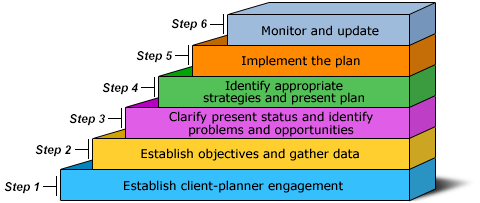Every new year we promise ourselves
to start, finish, or complete a task…only to fail miserably! We may begin yet never
quite finish. Sometimes, we remain stuck
in the thinking-about-starting phase
for a list of reasons (or perhaps excuses). You know the typical resolutions:
eat healthier, lose weight, stop smoking, or start exercising. Then, the typical money ones are pay down
debt and save for retirement. Our intentions
are to improve ourselves physically, mentally, emotionally, and spiritually.
We need to ask ourselves.
Does it matter if I don’t lay off the sweet desserts?
Does it matter if I don’t stop smoking?
Does it matter if I don’t track how much money I spend?
Does it matter if I don’t save for my children’s education?
As I glance at my writings, I pondered, “Does it matter if I don’t write blogs about money management?” The answer thrown right back at me is “Yes”. I hope I make a difference in at least one person’s financial well-being. I hope they grow a healthy financial tree.
We often jokingly say, “happy
wife - happy life”. Let’s take
this and create a unique self-made motto, “Healthy financial tree - Wealthy me”.
This sounds a bit bizarre but if a
play-on-words helps you remember why you need to do the right things, then it
works. We can’t dispute logic.
A financial tree is divided
into three parts. The top branches focus
on taking care of the family’s needs first.
These items have a direct relationship to meeting
a family’s needs if a catastrophic event occurs.
- A Written Financial Plan
- A Will and Estate Plan
- Living Will and Power of Attorney
- Insurance: Health, Disability, Life and Credit
The second part of a healthy financial
tree is made up of the other items related specifically to money:
- Pay yourself first
- Registered Retirement Savings Plan (or Tax Free Savings Plans)
- Pay your mortgage more frequently
- Three months of savings
- Credit: Get it while you don’t need it
- Registered Education Savings Plan for Children or Grandchildren
The third part, the roots, represents the
type and amount of debt. Debt will
either make your tree flourish or stifle its growth. “Good debt” often refers
to mortgage or student loans. Building equity in your home or receiving an
education to secure a well-paying job contributes to a person’s assets or
ability to earn an income. Excessive loans
for any other purpose than these may jeopardize our financial health.
All these branches are essential and impact
your entire well-being. Your stress is
reduced when you have an action plan.
You control and drive your life.
Your slate has been wiped clean of all
unfulfilled promises. Go ahead; create
new and fresh promises with the intentions of following through. If you’re stuck in “start” mode, focus on this
favorite quote. “Do not wait, the time will never be ‘just right’. Start where you stand, and work with whatever
tools you may have at your command, and better tools will be found as you go
along.” (George Herbert).






























